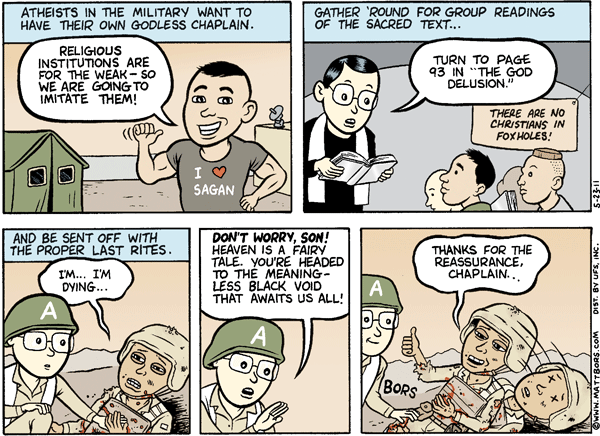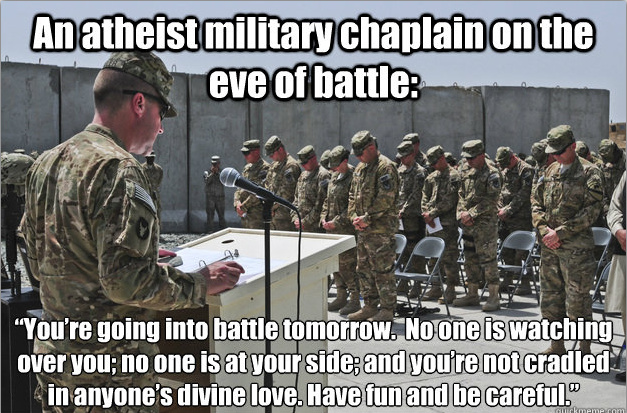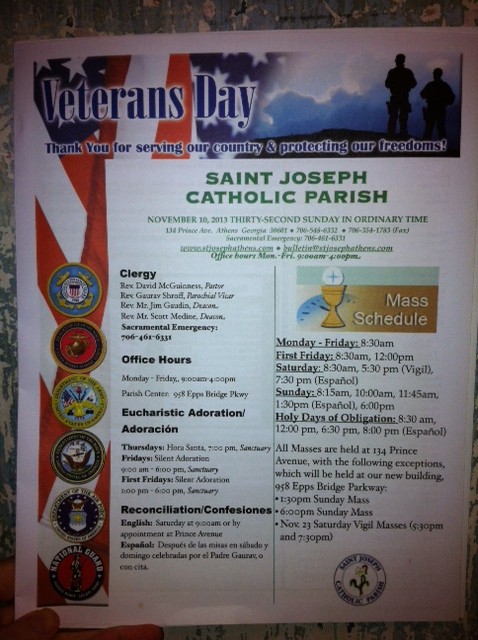For the last few days we’ve had a chance to peruse the comments threads on various websites where people are chiming in about CAM’s initiative, described in a recent article in the National Catholic Reporter. There’s been some confusion about why we encouraged Catholics to put statements of protest in the collection basket. Critics accused us of “attacking” the military chaplaincy and trying to “deny” sacraments and pastoral care to Catholics in the military. Neither of these charges is true.
1) To reiterate: The collection was accompanied by militaristic sermons and appeals in Catholic churches across the United States, with priests and laypeople honoring the military for keeping us “free” and “safe.” Behind the campaign’s message lies an assumption that America’s wars are good and necessary to keep us free and safe, a comforting myth but a debatable assumption. This campaign shamelessly capitalized on and took advantage of one of America’s greatest sins: idolatrous nationalism. In its imagery and advertising, slogans and sentimental appeals, it discouraged serious reflection on America’s foreign policy, the moral gravity of war, and the appropriateness of Catholics serving in the military, especially in wars such as these. In short, militaristic propaganda has no place in the House of God.
2) Let’s keep in mind this was the first ever collection for AMS. AMS managed to survive for almost 30 years without this collection. To say our efforts were an “attack” that posed an actual threat to AMS was a bit alarmist. Even if nobody gave a dime, AMS would still be in the exact same position they were in last year. They’d probably just throw a fundraiser, invite a bunch of beltway Catholic neocons with stock in the arms industry, play some golf, pray for the troops, smoke some cigars and cha-ching! Problem solved. Nothing in the public record suggests that Catholics in the military would lose access to the sacraments or pastoral care without this collection.
3) Military personnel receive a salary, free health care, free food, free or subsidized housing, family pay, education benefits, enlistment and re-enlistment bonuses, a noncontributory retirement plan, tax-free and hazardous duty pay if deployed to a combat zone, and a lifetime of benefits if they get seriously injured in the line of duty. These people are professionals, not charity cases. The Archdiocese of the Military has to raise about $5.5 million in private donations annually; the U.S. military has about 360,000 Catholics on active-duty; that’s about $15-$20 per year per Catholic. They should be able to pay for their own Archdiocese.
4) Furthermore, these funds pay for more than sacraments and pastoral care for men on the front lines of combat. Much of yesterday’s collection will be used to pay for the $1.8 million mortgage on the archdiocesan headquarters in Washington’s expensive Brookland neighborhood. There also seems to be a lot of money that goes toward AMS’s educational and formation materials, which is kind of scary. (What do their materials say? “Love your enemies,” with an asterisk and a footnote at the bottom: unless a government tells you to kill their enemies, but only if it’s the American government, because if another government tells you to kill their enemies, especially if their enemies are Americans, then killing is evil. Sheesh. We haven’t even gone there yet.)
5) Reality check: Only 4 to 10 percent of military personnel are trained combat troops; the rest have normal jobs in logistics, training, administration, and so forth. If you join the military, you have a 0.02 percent chance of dying in combat. We have over 900 bases around the world! On AMS’s slick marketing poster, however, some soldiers in fatigues are, of course, attending Mass in a desert rather than in a quiet suburb of Munich. I suppose it’s more emotionally resonant that way. We wonder who their ad agency is.
One definition of militarism is “the tendency to subordinate all interests to those of the military.” We are in the worst economic times since the Great Depression. America has a record number of people out work, a health care crisis, and record amounts of consumer, household, and government debt. All kinds of Catholic organizations are desperate for funds. On top of the taxpayer-funded compensation, Americans donate tens of millions of dollars to veteran’s charities every year. Soldiers and veterans also benefit from special discounts at many stores, preferential hiring from some companies, and never-ending public displays of appreciation and gratitude from a supportive and sympathetic public. Since every Catholic has a limited amount of money to give to various groups and causes, the Archdiocese of the Military should be low on the priority list, especially for any Catholic who opposes America’s wars and militarism inside the Church.
If you want to help people negatively affected by war, we suggest making a donation to War Child International or some other organization that helps the innocent victims of war. Civilian casualties in Iraq outnumbered U.S. military casualties by at least 30-to-1. Unlike U.S. military personnel, these civilians lack access to top-notch medical care and never chose war as a career path. The U.S. government invaded Iraq under false pretenses, completely destroyed its infrastructure, and unleashed mass chaos that killed 600,000 people (including more than 1,000 Christians). Violence continues to rise Iraq, with 1,370 people killed in October, the most in any month since 2007. Perhaps Americans owe more to the innocent victims of America’s wars than the people who wage them. Another possibility is donating to the Christian community of Iraq, which has been decimated by the war.
This campaign was not about attacking or destroying the Archdiocese of the Military. We didn’t expect anyone to refuse to donate because of us. Our initiative was for the people who wouldn’t have given to the collection anyway, the people who have been sitting in the pews biting their tongues for the past ten years while their churches get turned into houses of military worship, not saying a peep about any of it because they didn’t want to cause scandal or offend somebody or seem insensitive, but feeling less and less, and less, at ease with it. At some point, you feel you have to do something, to speak out. It was for them.
We’re trying to start a dialogue about militarism in the Catholic Church. Protesting the collection was simply an opportunity to make our voices heard, to start a conversation that is long overdue, and to get people thinking. It’s very unlikely that our campaign negatively impacted yesterday’s collection. Some of our critics probably donated extra just to stick it to us. Military personnel will continue receiving the sacraments and pastoral care from military chaplains—and that’s a good thing…though we do have many questions about the kind and quality of “pastoral care” military personnel receive from the military chaplaincy. Somebody somewhere needs to look into that. Seriously.









